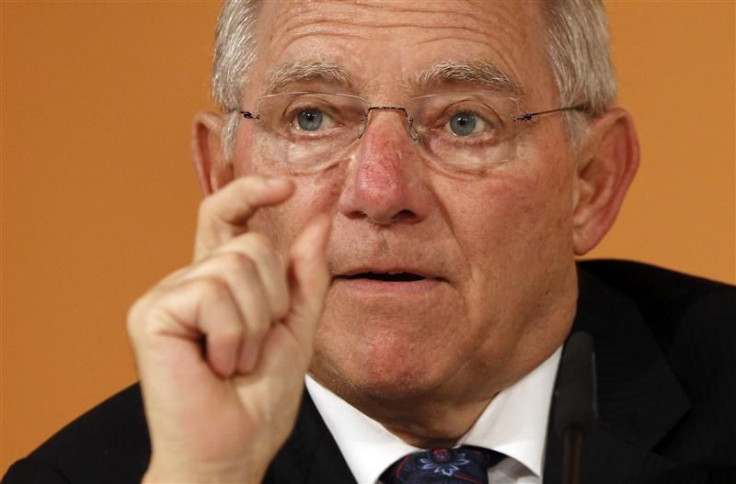Sovereign-Debt Funds Needed in All Eurozone States: Germany

Every country in the Eurozone needs to set up a special national fund for sovereign debt that is more than 60 percent of gross domestic product, Germany's finance minister told a newspaper in comments released on Saturday.
Wolfgang Schaeuble, detailing a proposal he will make at a European Union summit on Dec. 9, told the Passauer Neue Presse that a total of 500 billion euros ($672 billion) would need to go into the German fund.
We need a redemption fund in every single country of the Eurozone, he told the newspaper.
Tax revenues should be used to support the funds, Schaeuble said, adding that Germany would not need to raise taxes to implement the plan.
Around 500 billion euros needs to be stored in the fund. This affects federal, state, and municipal debt, he said.
German Chancellor Angela Merkel believes Schaeuble's proposal could help restore confidence in the euro, her representative said on Friday.
The chancellor welcomes the proposal of introducing national redemption funds as very interesting, Steffen Seibert told a news conference.
Merkel has ruled out the idea of common Eurozone debt issuance as a way to restore confidence in the currency bloc, and Schaeuble again underlined Germany's opposition in the newspaper interview.
There cannot be euro bonds. The German economy would be overburdened should we have to guarantee the debts of all the states. On top of this, the necessary pressure on countries to sort out their national debt problems would fall by the wayside. If all were to keep to the stability criteria, then the problem is solved by itself.
Asked whether the European Central Bank's recent bond-buying activities could increase inflation risks, Schaeuble said there was no reason to fear this.
Serious economists see neither risk nor signs of inflation dangers. The euro is stable, inside and out.
He also rejected the idea of kicking Greece out of the Eurozone as a way to help end the crisis.
We can't just show states the door if they have difficulties. Also, the economic consequences would be totally unforeseeable were one or more countries to leave the Eurozone. The vast majority say that this would be the worst of all developments.
($1 = 0.7446 euros)
(Reporting by Sylvia Westall, Editing by Chizu Nomiyama)
© Copyright Thomson Reuters {{Year}}. All rights reserved.





















